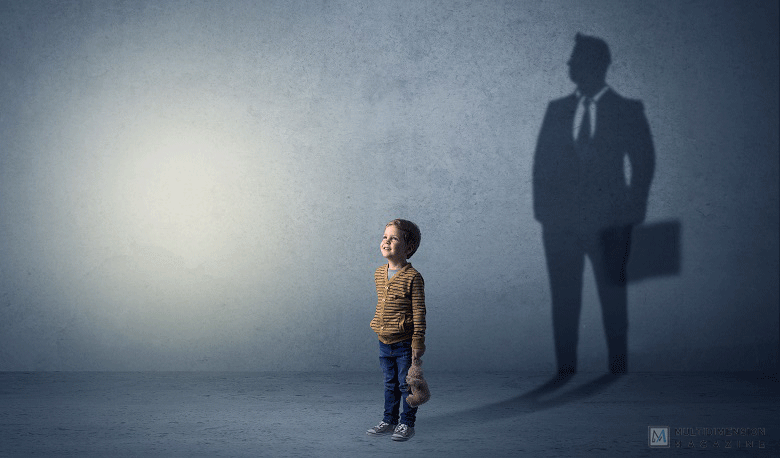Written by : Srijanee Biswas
Columbus, IN, United States
Photo credit: Shutterstock.com
Dated: 11th April, 2020
It’s the year 2050 and you, the readership, are almost as old as your Millennial parents now. You may be a Boston resident commuting to your work in Washington D.C. – a mere 40-minute Hyperloop ride; or you may be an architect 3D-printing their next housing project or a pastor preaching a remote congregation from afar. Whatever it is that you might be, you’re most likely to have a cure for or have been immunized against or live in a world completely devoid of Covid-19. And in this world, when you engage in social discourse on or revisit, through the miracles of Virtual Reality (VR), events that shaped the 21st century, I pray you know that for us living through this pandemic, the life and world as we know it has already changed leaps and bounds in a mere span of 3 months.
To put things into perspective, as of right now, more than one-third of the world’s population, according to a report by Agence France-Presse, is under some form of government-mandated lockdown [1] – more than the number of people who were alive to witness World War II. But let’s step back a bit – what was this pandemic you ask? Covid-19 is a respiratory disease, caused by the SARS-CoV-2 virus, that originated in Wuhan, China in late 2019 [2] and thanks to globalization, has quickly found its way to 185 countries around the world. As of this writing, the global death toll stands at 109,823 out of a total 1,789,985 confirmed cases [3]. This rapid outbreak has taken the world by storm and exposed gaping holes in public health emergency preparedness across the board. Despite lessons from outbreaks like SARS, MERS and the H1N1 flu and studies outlining the emergence and impacts of a disease strikingly similar to the current coronavirus crisis, many governments have failed to read the signs of its onset. Collectively, as a society, this goes to show that we eventually forget and unfortunately, it takes a sharp uncontainable increase in the number of deaths to jar us back into reality.
But this time, can we really forget? I guess time and you, the reader, will tell. Maybe some of what this pandemic has forced us to explore or resign to is now commonplace in your society and/or has become your way of life. The now-desolate Statue of Liberty, Pantheon and Champs de Mars will once again teem with excited bloggers and selfie-takers and so will the shopping malls, food courts and train stations. But will we forget the social distancing norms that now expect us to be at least 6 feet apart from each other in public spaces? Will we, if not completely refrain from, at least not think twice before shaking hands with someone? Or holding the support rail inside our public transports? Maybe proximity-sensing entry and exitways will become required by law. Maybe, just like security and baggage scanners, airports will now have mandatory health scanners that generates under-a-minute results and prohibits travelers with thus-proven health risks or disease strains from flying. Maybe team sports, restaurants and bars will be a thing of the past and we’ll continue to socialize on Houseparty [4], celebrate festivals and birthdays with our families over Zoom [5] or maybe, we’ll all flock to such gatherings instead after having being bored out of our minds during this extended quarantine. However it turns out, we’ll definitely be less communal at least for a little while, as suggested by Paul Freedman in [6].
I wonder – do you, Gen Alpha, still send your kids to school or has eLearning completely taken over, as heralded by this pandemic? Granted certain vocations like hospitality and other service-providing industries will always depend on some form of social interaction, have the majority of you transitioned to remote work, again as proven possible by this mandated lockdown? What happens to the minority that can’t work from home – the doctors, nurses, supply-chain, electricity and sanitation employees? Do you see them as heroes that bravely fought a war against the infectious virus and didn’t let the wheel come to a screeching halt? The sections of the society that have perhaps been hardest hit by the effects of this pandemic are the hourly wage workers who have suddenly become non-essential, leading to a whopping 17 million people filing unemployment claims in the United States alone [7]. The stress is compounded for workers on non-immigrant visas who suddenly face the possibility of being deported to their home countries as they quickly approach the maximum number of unemployed days permitted by the immigration agencies. The U.S. government, like many others, is providing financial stimulus to keep their nation’s economy afloat. But it is yet to be seen how such employees can be rehabilitated into the slow, if not stagnant, economy as the pandemic draws to a close. Will capitalism and consumerism still be a way of life now that we have learnt to survive without the non-essentials that we’d otherwise compulsively purchase or frivolously indulge in? Will Western countries exercise even more restrictions on both legal and illegal migrant workers so as to compensate for the jobs lost by its own citizens? Will the world resort to some sort of a reverse globalization in the wake of Covid-19?
All these burning questions truly make today and the upcoming months a turning point in modern history. When we wake up at the better end of it, still reeling from its aftermath, let’s not forget that at some places, doctors had to choose between a terminally-ill cancer patient and a critical Covid-19 patient. Let’s not forget that governments had to outbid each other to purchase life-saving equipment such as N95 masks and ventilators, and that cities had to convert parks and other sports arenas into field hospitals to treat patients and dig mass graves to cremate its dead. Let’s not forget that people could not perform the last rites of their loved ones either due to the risk of contamination or due to the widespread travel restrictions. And last but not the least, let’s not forget our lesson in essentials-for-life and the stories of pure hope from across the globe that made it possible to breathe a sigh of relief during this catastrophe.
References
[2]Coronavirus disease(covid-19) pandemic
[4] Houseparty: Is the hit coronavirus lockdown app safe?
[5] From netflix party to zoom: The internet apps getting us through quarantine.
[6] Coronavirus will change the world permanently. here’s how
[7] Why covid-19 won’t trigger another great depression
(The views expressed in this article are the author’s own and do not necessarily reflect Multidimension’s editorial stance.)





The fusion of facts in the narrative along with a thoughtful reflection of this point in crisis definitely deserve a sincere appreciation. Good job.